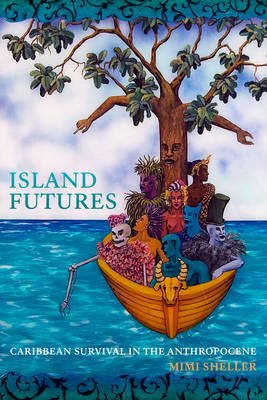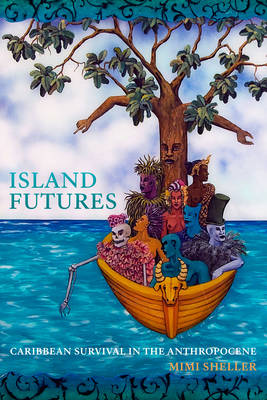
- Afhalen na 1 uur in een winkel met voorraad
- Gratis thuislevering in België vanaf € 30
- Ruim aanbod met 7 miljoen producten
- Afhalen na 1 uur in een winkel met voorraad
- Gratis thuislevering in België vanaf € 30
- Ruim aanbod met 7 miljoen producten
Zoeken
€ 39,95
+ 79 punten
Omschrijving
In Island Futures Mimi Sheller delves into the ecological crises and reconstruction challenges affecting the entire Caribbean region during a time of climate catastrophe. Drawing on fieldwork on postearthquake reconstruction in Haiti, flooding on the Haitian-Dominican border, and recent hurricanes, Sheller shows how ecological vulnerability and the quest for a "just recovery" in the Caribbean emerge from specific transnational political, economic, and cultural dynamics. Because foreigners are largely ignorant of Haiti's political, cultural, and economic contexts, especially the historical role of the United States, their efforts to help often exacerbate inequities. Caribbean survival under ever-worsening environmental and political conditions, Sheller contends, demands radical alternatives to the pervasive neocolonialism, racial capitalism, and US military domination that have perpetuated what she calls the "coloniality of climate." Sheller insists that alternative projects for Haitian reconstruction, social justice, and climate resilience-and the sustainability of the entire region-must be grounded in radical Caribbean intellectual traditions that call for deeper transformations of transnational economies, ecologies, and human relations writ large.
Specificaties
Betrokkenen
- Auteur(s):
- Uitgeverij:
Inhoud
- Aantal bladzijden:
- 256
- Taal:
- Engels
Eigenschappen
- Productcode (EAN):
- 9781478011187
- Verschijningsdatum:
- 6/11/2020
- Uitvoering:
- Paperback
- Formaat:
- Trade paperback (VS)
- Afmetingen:
- 150 mm x 226 mm
- Gewicht:
- 385 g

Alleen bij Standaard Boekhandel
+ 79 punten op je klantenkaart van Standaard Boekhandel
Beoordelingen
We publiceren alleen reviews die voldoen aan de voorwaarden voor reviews. Bekijk onze voorwaarden voor reviews.







